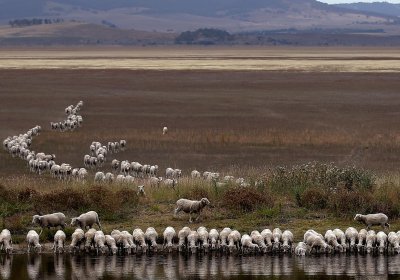Less than three months into President Donald Trump’s reign we can already say that there is a non-trivial chance that the United States will soon be engaged in a nuclear war.
The threat is still remote, but the pieces are in place. An aircraft carrier group is en route to the Korean peninsula and anonymous sources have threatened a pre-emptive strike against North Korea.











